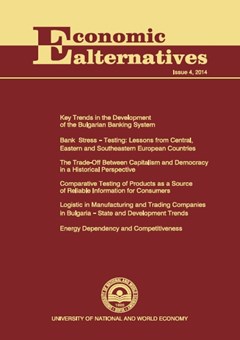Model of Effective Management of Bulgarian Public Administration Managing EU Funds
Author: Shteryo Nozharov
Abstract
The paper analyzes the possibilities of constructing a model for the effective management of the Bulgarian public administration responsible for managing the EU funds amid the global financial crisis by using McKinsey’s 7S model. The change of the management model of the public administration in charge of the absorption of EU funds in Bulgaria would increase the absorption rate of the funds while streamlining budgetary costs on the maintenance of the administration. The aim of the study is to identify the causes leading to the inadequate absorption of EU funds for Bulgaria and consider ways to address the problems. Such an analysis would be useful for countries applying for EU membership – Macedonia, Serbia, and Turkey to avoid repeating such mistakes. In addition, the analysis makes an attempt to identify some weaknesses of the structure in place in other EU member states such as Hungary and Slovenia.

